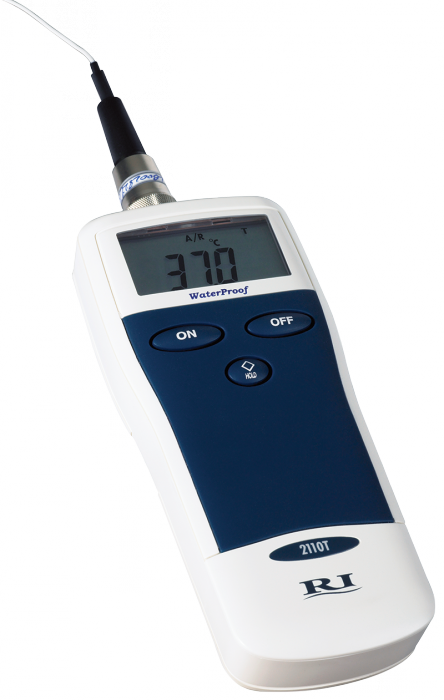Accurate Temperature Measurement
Consistently good temperature control is one of the best ways to optimise results in the ART laboratory. Labs use the IVF Thermometer to verify that any heated equipment, which comes into contact with live samples, is performing as required.
The specially designed microprobe allows the user to accurately measure the temperature of heated stages and inside media droplets, incubators and refrigerators. The probe can be held in place or fitted to a holder for hands-free measurement. The probe is also insulated against heat from the user for truly accurate measurements.
This product is available for sale in the U.S.A and selected countries in Europe and the rest of the world.

“I consider this an essential piece of kit for the correct function of our lab and quality system”
Sue Pickering, NHS Lothian, Edinburgh, Scotland

Key Features
Practical
Unique microprobe for microdrop measurement
Versatile
Cryo-probe or robust probe available in addition to microdrop probe
Simple
Ergonomic design with large backlit digital display
Accuracy
UKAS certified offset.
Portable
Typically 500 hours operation time on battery.
Calibrated
Set to temperatures typically experienced during ART procedures and storage of related consumables. (5°C, 37°C, 45°C) (Calibration certificate included)
37°C (98.6°F)
45°C (113°F)
| Part Number | Part Description |
|---|---|
| 7-90-000 | IVF Thermometer with probe, holder & calibration certificate |
| 7-90-004 | IVF Thermometer with 2xprobe, holder & calibration certificate |
| 7-90-001 | Spare probe for IVF Thermometer – Not calibrated to IVF Thermometer |
| 7-90-013 | Robust thermometer probe (uncalibrated) – Not suitable for microdrops |
| 7-90-006 | Probe stand for IVF Thermometer probe |
| 7-90-011 | Probe for 0 to -200°C (vapour phase) with accuracy of +/- 3°C. – Calibration not required for this range of temperature. |
Q. How often should the meter be recalibrated?
A. Every twelve months.
Q. Where can I get my meter calibrated?
A. Calibration does not involve adjusting the meter, but checking the reading against a known standard, and issuing a certificate showing the offset at the calibration temperatures (typically 5°C, 37°C and 45°C). Any competent test company can offer this service. You can return the meter to us for calibration, but this may take longer and be more expensive due to shipping.
Q. What do I do if the thermometer needs adjusting?
A. It can only be adjusted by the manufacturer. If you think it needs adjusting then please return the unit to us.
Q. How do I clean the probes?
A. A probe should be cleaned after each use. Immerse the tip in a laboratory grade detergent solution for a few minutes to clean it. Disinfect by immersing in embryo-safe disinfectant, 70% isopropyl alcohol or similar, then rinse with pure water and allow to dry. Take great care, as the tip on the standard (microdrop) probe is small and delicate.
Q. How long can I leave it in the incubator for?
A. It is not recommended that you leave the thermometer in a humidified incubator for longer than four hours.
Q. How long can I use the probe in media?
A. Leaving the probe in salty solutions (media) for prolonged periods of time will cause corrosion, and will damage the probe. To increase the operating life of the probe, use water droplets as a replacement to media. Then wash and dry the probe after every use.
Q. Can I use it to read in nitrogen vapour?
A. Do not use robust or standard (microdrop) probes for readings in nitrogen vapour. We can supply a cryo-probe for this purpose.
Q. Can it measure surface temperature using thermal paste?
A. Yes – normal or robust probes can measure surface temperatures.
Q. How durable is the IVF Thermometer probe?
A. The standard (microdrop) probe requires careful handling so durability depends on how it is used. Cryo-probes are sturdy and durable.
Q. Can the robust probe be used in microdroplets?
A. No – the standard (microdrop) probe is suitable for this though. The robust probe can also be calibrated to reduce the 0.5°C variation in accuracy for immersion and surfaces only, such as inside an incubator or water bath.
Q. Why is my thermometer reading “OC”?
A. This means “Open Circuit”, and probably means the fine wire at the tip of the probe is broken. The probe cannot be repaired so it must be replaced and the meter recalibrated.

